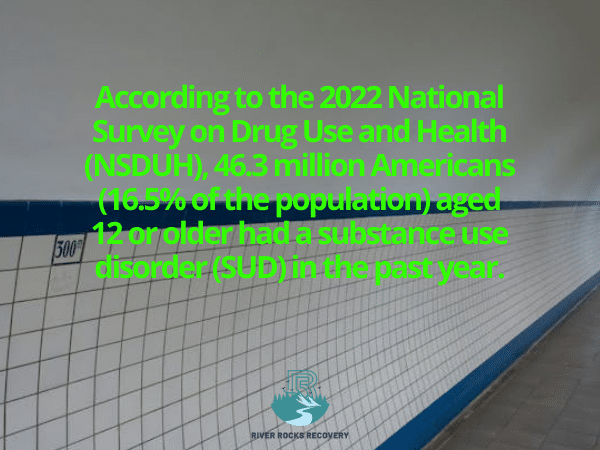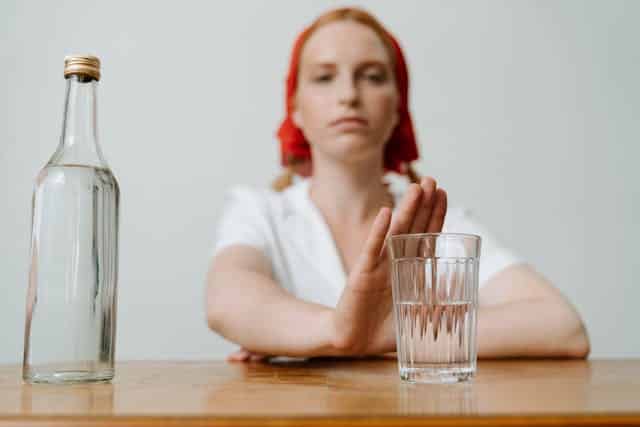Recovering from addiction is a deeply personal and transformative journey. At its core, recovery is about letting go of the illusion of control and embracing a new way of life. One of the most crucial concepts in 12-step programs and many forms of addiction recovery is the idea of powerlessness. While it may sound counterintuitive, acknowledging powerlessness over drugs and alcohol is the first step toward true empowerment.
But what does it truly mean to be powerless in sobriety? How can accepting powerlessness lead to a sense of control and a healthier, sober life? More importantly, how can addiction treatment programs, such as a Partial Hospitalization Program (PHP), Intensive Outpatient Program (IOP), Outpatient Program (OP), and Sober Living Program, help individuals embrace this concept and achieve lasting sobriety?
At River Rocks Recovery, we guide individuals through every stage of their addiction treatment journey, providing the tools and support necessary to embrace powerlessness as a stepping stone to strength, self-awareness, and long-term recovery.
What Does Powerlessness in Sobriety Really Mean?
The idea of powerlessness originates from Step One of the Alcoholics Anonymous (AA) 12-Step Program, which states:
“We admitted we were powerless over alcohol—that our lives had become unmanageable.”
This statement is not a declaration of weakness but an acknowledgment of reality. Powerlessness means recognizing that addiction is a disease—one that is not controlled by willpower alone.
Many people struggling with substance use disorders try to rationalize, moderate, or quit on their own, only to find themselves trapped in the same destructive cycle. This repeated pattern proves that addiction is not about lacking discipline; instead, it is a chronic medical condition requiring professional help and structured support.
Accepting powerlessness means:
- Recognizing the inability to moderate or control substance use.
- Understanding that no amount of personal willpower can “cure” addiction.
- Accepting that professional treatment and community support are necessary.
- Acknowledging that past efforts to quit alone have failed.
- Surrendering to the idea that a new way of thinking and living is needed.
For many individuals entering an alcohol rehab treatment or drug rehab treatment program, the concept of powerlessness can be difficult to accept. However, this realization frees individuals from the burden of trying to fight addiction alone and opens the door to effective, evidence-based treatment.
The Fear of Powerlessness: Why People Struggle with Letting Go
The idea of admitting powerlessness can trigger intense emotional resistance. Many individuals fear that accepting powerlessness means:
- Losing control over their lives.
- Being seen as weak or incapable.
- Becoming completely dependent on others.
- Giving up on the possibility of change.
However, the truth is quite the opposite. True strength comes from recognizing the need for help and making the courageous decision to seek professional addiction treatment. Acknowledging powerlessness is not about giving up—it is about opening up to new possibilities.
Many individuals find that once they stop fighting against addiction and instead start working through recovery with structured support, they experience more stability, clarity, and peace than they ever did while struggling with substance use.
How Powerlessness Leads to Empowerment in Addiction Recovery
It may seem contradictory, but embracing powerlessness is actually the first step toward gaining real control over life. Here’s how:
1. It Releases the Burden of Shame and Guilt
People struggling with addiction often feel deep shame and guilt about their substance use, past behaviors, and failed attempts to quit. They may blame themselves for their struggles, believing they simply lack willpower or discipline.
However, addiction is a complex disease, not a moral failing. Recognizing powerlessness helps individuals understand that their struggles are not due to personal weakness but are the result of a medical condition requiring treatment—just like diabetes or heart disease.
2. It Opens the Door to Professional Help
Once individuals accept that they cannot overcome addiction alone, they become more open to professional addiction treatment programs such as:
- Partial Hospitalization Program (PHP) – Provides structured, intensive therapy during the day while allowing individuals to return home at night.
- Intensive Outpatient Program (IOP) – A step down from PHP, offering flexible yet comprehensive therapy while allowing individuals to maintain personal responsibilities.
- Outpatient Program (OP) – Designed for individuals transitioning from more intensive care or those needing ongoing support.
- Sober Living Program – A structured, supportive environment that reinforces recovery habits while helping individuals adjust to independent living.
3. It Strengthens Connection with Others
Addiction thrives in isolation, making it easy for individuals to convince themselves that no one understands their struggles. However, admitting powerlessness encourages people to lean on support systems such as:
- Group therapy sessions
- 12-step meetings like AA or NA
- One-on-one counseling with addiction specialists
- Family therapy to rebuild relationships
Connecting with others who understand their experiences helps individuals gain strength, motivation, and accountability in their recovery journey.
4. It Encourages Emotional and Spiritual Growth
Many individuals find that accepting powerlessness is not just about addiction—it extends to life as a whole. It allows them to:
- Let go of the need for absolute control.
- Develop mindfulness and self-awareness.
- Explore spiritual growth or personal purpose.
- Learn healthy coping mechanisms for stress and emotions.
At River Rocks Recovery, we incorporate holistic approaches such as meditation, yoga, nutritional counseling, and trauma-informed care to support emotional and spiritual healing.

The Role of Addiction Treatment Programs in Overcoming Powerlessness
While accepting powerlessness is an important first step, true healing requires structured addiction treatment to address the root causes of addiction and develop sustainable coping strategies.
Our Addiction Treatment Programs in Ohio Include:
Partial Hospitalization Program (PHP)
- Intensive, structured therapy during the day.
- Medical and psychological support.
- Ideal for those transitioning from inpatient care or needing high-level care.
Intensive Outpatient Program (IOP)
- A balance of structured therapy and personal responsibility.
- Involves group therapy, individual counseling, and relapse prevention strategies.
- Provides flexibility for work, school, or family obligations.
Outpatient Program (OP)
- Ongoing support and therapy for long-term recovery.
- Weekly or biweekly sessions tailored to individual needs.
- Encourages independent growth while maintaining structured care.
Sober Living Program
- Provides a safe, structured environment for individuals transitioning out of treatment.
- Encourages peer support, accountability, and relapse prevention.
- Helps individuals establish independent, sober lives.
Each of these programs is designed to empower individuals beyond addiction by equipping them with the skills and support necessary for long-term recovery.
Breaking Free from Addiction: The Power of Letting Go
At River Rocks Recovery, we help individuals understand that powerlessness is not the end—it is the beginning of true transformation. By embracing professional addiction treatment, therapy, and peer support, individuals gain the tools to rebuild their lives and achieve lasting sobriety.
If you or a loved one is struggling with alcohol addiction or drug addiction, we are here to help. Whether you need a partial hospitalization program, intensive outpatient program, outpatient program, or sober living program, our compassionate team is ready to guide you toward healing and freedom from addiction. You don’t have to fight addiction alone—let us help you reclaim your life. Call us today at (888) 905-6281 to learn more about our programs and take the first step toward a healthier, alcohol-free future.
FAQ About Powerlessness in Sobriety
What does it mean to be powerless in sobriety?
Powerlessness in sobriety means recognizing that addiction is a disease and that willpower alone is not enough to control substance use. Accepting this concept helps individuals seek professional help and structured support for lasting recovery.
Does admitting powerlessness mean giving up control?
No, admitting powerlessness does not mean giving up control. Instead, it means recognizing the need for help and opening yourself to effective addiction treatment programs, therapy, and support systems that empower you to rebuild your life.
How does accepting powerlessness help in addiction recovery?
Accepting powerlessness helps individuals move past shame, embrace professional treatment, and build strong connections with support groups. It also encourages emotional and spiritual growth, which are essential for long-term sobriety.
What addiction treatment programs support individuals struggling with powerlessness?
At River Rocks Recovery, we offer:
- Partial Hospitalization Program (PHP) – Structured therapy with medical support.
- Intensive Outpatient Program (IOP) – Flexible treatment with counseling and group therapy.
- Outpatient Program (OP) – Continued therapy while maintaining daily responsibilities.
- Sober Living Program – A structured, supportive environment for long-term recovery.
How can I get started with addiction treatment in Ohio?
If you or a loved one is struggling with addiction, River Rocks Recovery provides compassionate, evidence-based treatment. Contact us today to learn more about our addiction treatment programs and start your journey to recovery.




























